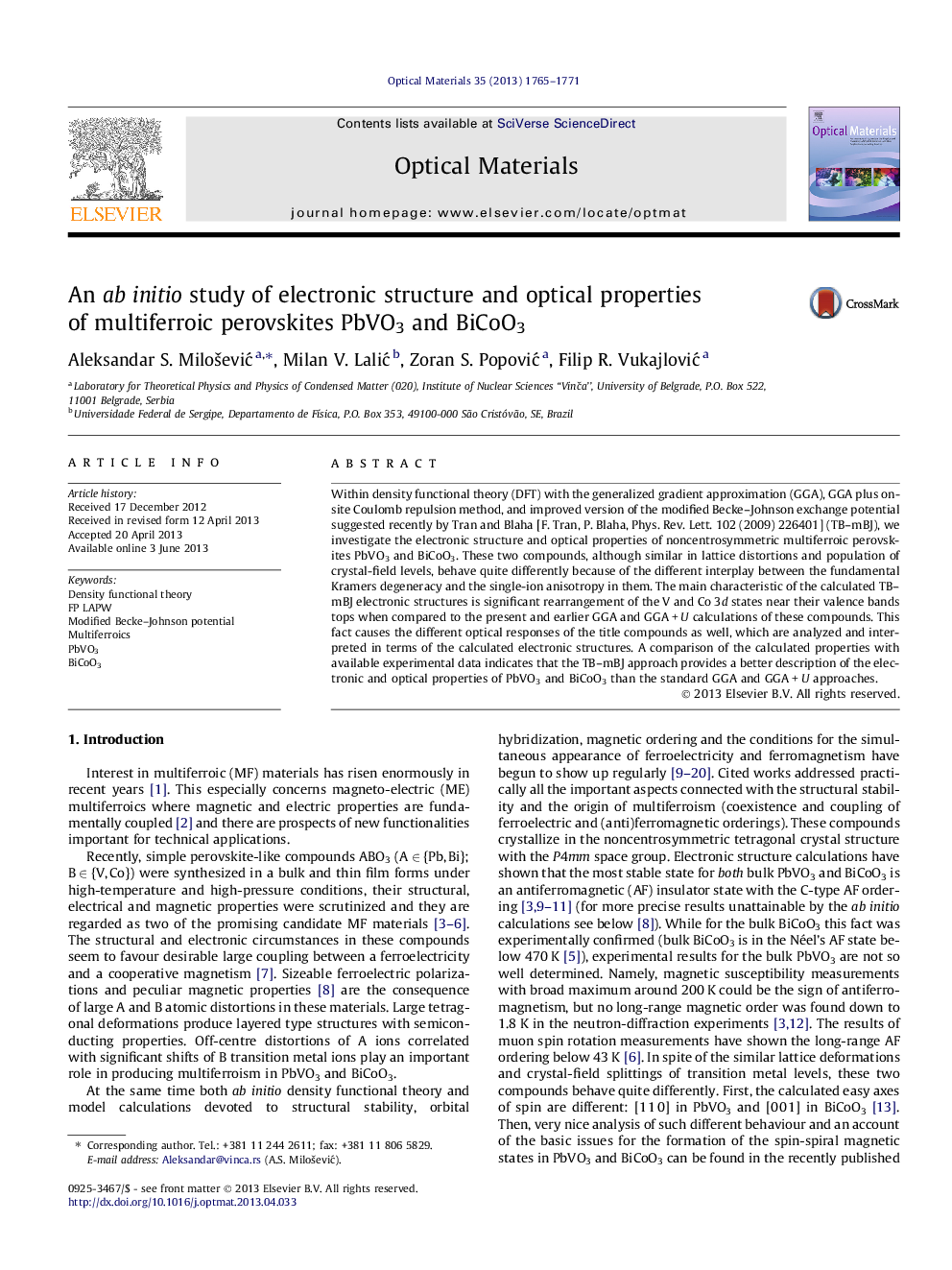| کد مقاله | کد نشریه | سال انتشار | مقاله انگلیسی | نسخه تمام متن |
|---|---|---|---|---|
| 1495180 | 992928 | 2013 | 7 صفحه PDF | دانلود رایگان |

• Within DFT we studied electronic structure and optical properties of PbVO3 and BiCoO3.
• Four different XC potentials were employed including a modified Becke–Johnson potential (TB–mBJ).
• Various optical coefficients were calculated.
• Decomposition of the imaginary part of the dielectric tensor in terms of the calculated band structure was performed.
• TB–mBJ shows best agreement with experiments (compared to the other three XC potentials).
Within density functional theory (DFT) with the generalized gradient approximation (GGA), GGA plus on-site Coulomb repulsion method, and improved version of the modified Becke–Johnson exchange potential suggested recently by Tran and Blaha [F. Tran, P. Blaha, Phys. Rev. Lett. 102 (2009) 226401] (TB–mBJ), we investigate the electronic structure and optical properties of noncentrosymmetric multiferroic perovskites PbVO3 and BiCoO3. These two compounds, although similar in lattice distortions and population of crystal-field levels, behave quite differently because of the different interplay between the fundamental Kramers degeneracy and the single-ion anisotropy in them. The main characteristic of the calculated TB–mBJ electronic structures is significant rearrangement of the V and Co 3d states near their valence bands tops when compared to the present and earlier GGA and GGA + U calculations of these compounds. This fact causes the different optical responses of the title compounds as well, which are analyzed and interpreted in terms of the calculated electronic structures. A comparison of the calculated properties with available experimental data indicates that the TB–mBJ approach provides a better description of the electronic and optical properties of PbVO3 and BiCoO3 than the standard GGA and GGA + U approaches.
Journal: Optical Materials - Volume 35, Issue 10, August 2013, Pages 1765–1771